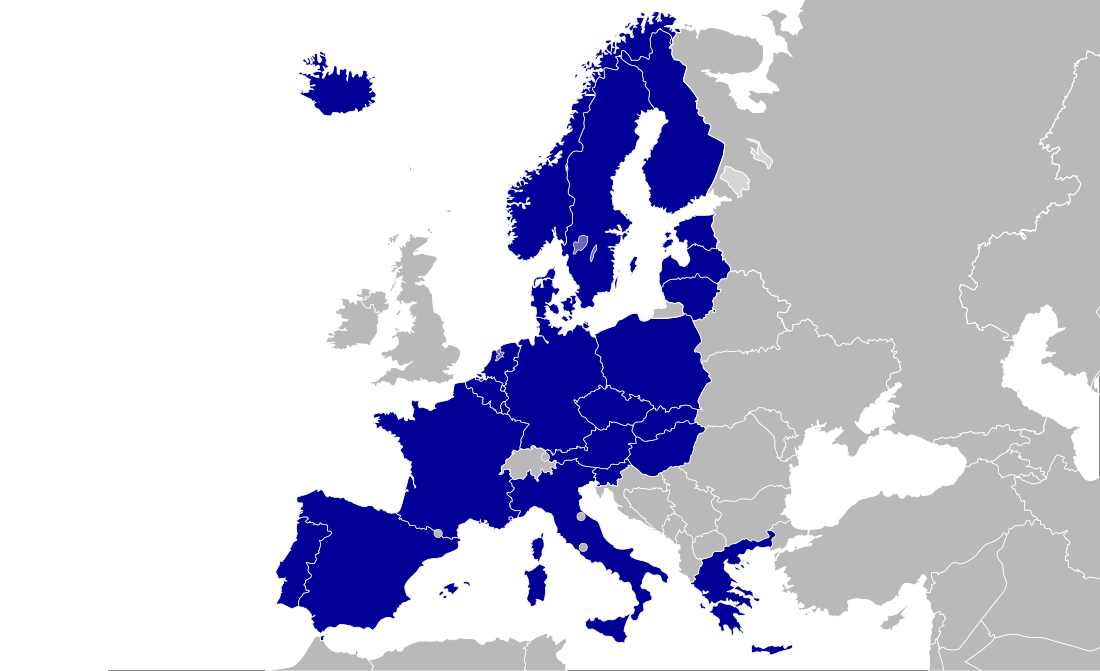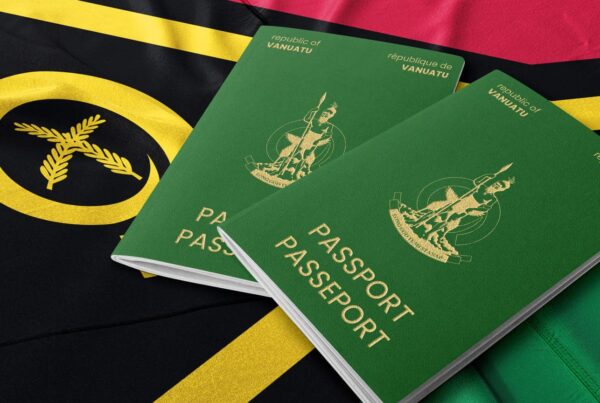By Brian Greco
Recent news that the European Commission was proposing “partial suspension” of visa-free access to the Schengen Area for Vanuatu passport holders has sparked controversy throughout the industry on the topic of visa- free travel and its acceptability by Europe.
This has shaken the core of citizenship by investment: If a passport loses its once “most marketable” feature, what compels investors to shell out hundreds of thousands of dollars for that passport over another, or for a passport at all?
Much of the discussion around CBI assumes that the “be all, end all” of investment migration is accessing the West. As someone from a Western country, this is understandable but also confusing to me.
On one hand, I recognize that having more access especially to Europe and the “first world” (whatever that means at this point) is desirable for many global people and not to be taken for granted.
On the other, I look out across the world post-2020 and start to ask myself: What is so great about the Schengen Area anyway? Why is “does it have Schengen-access” the number one question we are asking?
I have spent most of the last half a decade living in the “non-Western” world: China, the Gulf, Malaysia, Eastern Europe, and now in Turkey where I spend most of my days. I also have visited a majority of the Schengen Area members and thus aim to look at this objectively from both sides, and merely serve some food for thought on the other side of this debate.
There is no such thing as “visa-free travel” anyway
First off, I would like to once again call into question and hopefully help dismantle the notion of “visa-free travel” in a post-COVID world. I wrote last month, in reflecting on the past two years of global restructuring that the COVID-19 phenomenon has ushered in, how visa-free travel is dead.
This shift is especially relevant for the EU and its Schengen Area border policy, which has been among the most patchwork, arbitrary, and unclear of all border policies globally. Ever-changing goal-posts matched with “maybe borderless” border crossings and quarantine and identification requirements seriously render the days of an open Europe a long-gone fantasy.
Couple that with ongoing rumblings of electronic travel authorizations even for major inbound nationalities like the US, and the picture complicates itself further. So, it’s not as if passport holders with Schengen “visa-free” access from CBI countries or any countries for that matter can count on surefire entry into Europe.
The EU is not the attractive prospect it once was
Next, we look at the actual “prize” being discussed. Now, I am not here to make moral judgments about which country is best for you or your family or particular lifestyle, nor whether the countries themselves are “worth” visiting – that is up to the individual to decide.
I have enjoyed traveling to Europe and certainly recognize its strengths. But I’d also like to point out that, for some reason, I have noticed it is one area of the world that never seems to be receive criticism and praise in equal measure.
The merits of living in the US, Asia, or the Middle East are up for debate. Yet somehow, Europe clings to a 20th-century (or, perhaps, way older) image of itself as the sole gatekeeper of economic prosperity, high living standards, personal safety, and other desirable characteristics. Note other parts of the world are increasingly scoring better than Europe on many of those dimensions, especially if you consider Europe’s aging population, high unemployment rates, rising crime, illegal immigration, and high tax rates throughout the Schengen Area.
The easiest way to see this is to question the average European on why Europe is so great. They will seem almost religiously confused as to why anyone would point out that, for example, healthcare, transportation, and economic opportunity is expanding at a far greater rate in the non-Western world (take Turkey for example) or why large countries such as Russia or Brazil may be far better poised geopolitically in a post-COVID global supply chain.
Obsession with Schengen access elides other passport perks
Myopically focusing on Schengen access greatly cheapens the value proposition of a CBI passport. CBI passports are about so much more than their visa-free travel count. Whether for personal privacy, access to banking, better tax terms, the renunciation of other nationalities, or numerous other reasons, it’s important to consider the whole picture.
Sure, many CBI countries are smaller nations that may not be the sole goal for their investors to live in. However, for example, I am not even sure many people are aware how the CARICOM Certificate of Skills allows them to live and work indefinitely across the 12 member states (including larger countries like Guyana, Suriname, and Belize) and may offer perks in semi-participating states across the Caribbean and Latin America.
Or take my favorite CBI program, the one of my home country, Turkey. It grants an unconditional club membership to one of the most dynamic countries in the world — Turkey’s passport consistently ranks among the highest of “non-Schengen” countries — and even, if relevant, offers access to the likes of Japan, South Korea, Serbia, Albania, Central Asia, and almost all of Africa and Latin America.
If I had a lira for every time someone rumbled about Turkey not being an EU member, I would be able to buy the passport several times over. I pray that Turkey stays away from the onerous restrictions that would be put on it and would utterly destroy its geopolitical, cultural, and demographic edge. Consider also its history of special economic gateways to the UK and US, excellent regional connectivity, and status, in the eyes of many, as the keeper of the Muslim world. Yet the only thing many consider is whether it has a Schengen visa waiver.
Or take Vanuatu’s passport – recently on the “chopping block” – which, as Martin St-Hilaire and Philippe May point out, offers visa-free access to the UK, Hong Kong, Singapore, Russia, and numerous other countries in Africa and Asia, to say nothing of the island nation’s tax-free status, huge investment opportunities, and unique placement in the Asia-Pacific region.
The EU has consistently been one of the biggest hindrances to the IM industry, undermining confidence in due diligence and the freedom of individuals to choose, change, or double their nationality and freedom. It may be apparent now that the recurrent need to appease the EU’s selective outrage towards CIPs shows that the juice is not worth the squeeze.
How many more times does a wonderful program need to be canceled, postponed, or devalued/price-hiked because of the bureaucratic influence of the EU before we come to terms with the fact that this institution is not friendly to the IM world? Whether the story is in Moldova, Malta, Montenegro, Bulgaria, or otherwise, I’d love to see the discussion shift away from the Schengen Area and more onto other parts of the world equally worth engaging with.
The new game of IM is about regional strategy
The world has become increasingly regionalized and decreasingly open in the last two years. Europe’s trend towards closure to visa-free travel indicates a trend that is also seen in “developed” counterparts such as New Zealand, Australia, Canada, and elsewhere.
The reality is that, if you want to be in Europe, you must pursue a European program. I firmly believe that over the next several decades, the only reliable way to visit the Schengen Area will be to be a permanent resident or even a citizen of a European Union member state.
I have even spoken to some people who seem to think that if they get a CBI passport that has Schengen access, this somehow means they can live or stay indefinitely in the Schengen area. Unless you define living as spending less than 90 days per 6 months and using no formal residency services, this is not a possibility.
If your focus is Europe, get yourself a Portuguese Golden Visa or a Greek one. Consider looking at the citizenship-by-descent programs of Italy, Poland, Bulgaria, Czechia, or others if those apply to you. If none of those are in your cards or your budget, perhaps look into the numerous active investor visas, independent means visas, and freelancer visas that are available throughout the continent or even peek at the “unsung hero” programs in Andorra, France, and others covered in IMI.
And perhaps we can begin to start dismantling the notion that everything has to remain oriented towards the Schengen Area and work towards a more multipolar world.
Brian Greco is a traveler, cultural explorer, and advocate of free movement and the investment migration industry based in Istanbul, Turkey. Originally from the USA, Brian has a background in globalization studies at New York University and experience living in Asia, the Middle East, Eastern Europe and traveling solo to more than 75 countries. He focuses on investigating and promoting new possibilities for expanding lifestyles in global cities, especially in frontier markets. Brian is a believer in the power of discovering the lesser-known path in life and using travel as a tool for personal growth.





